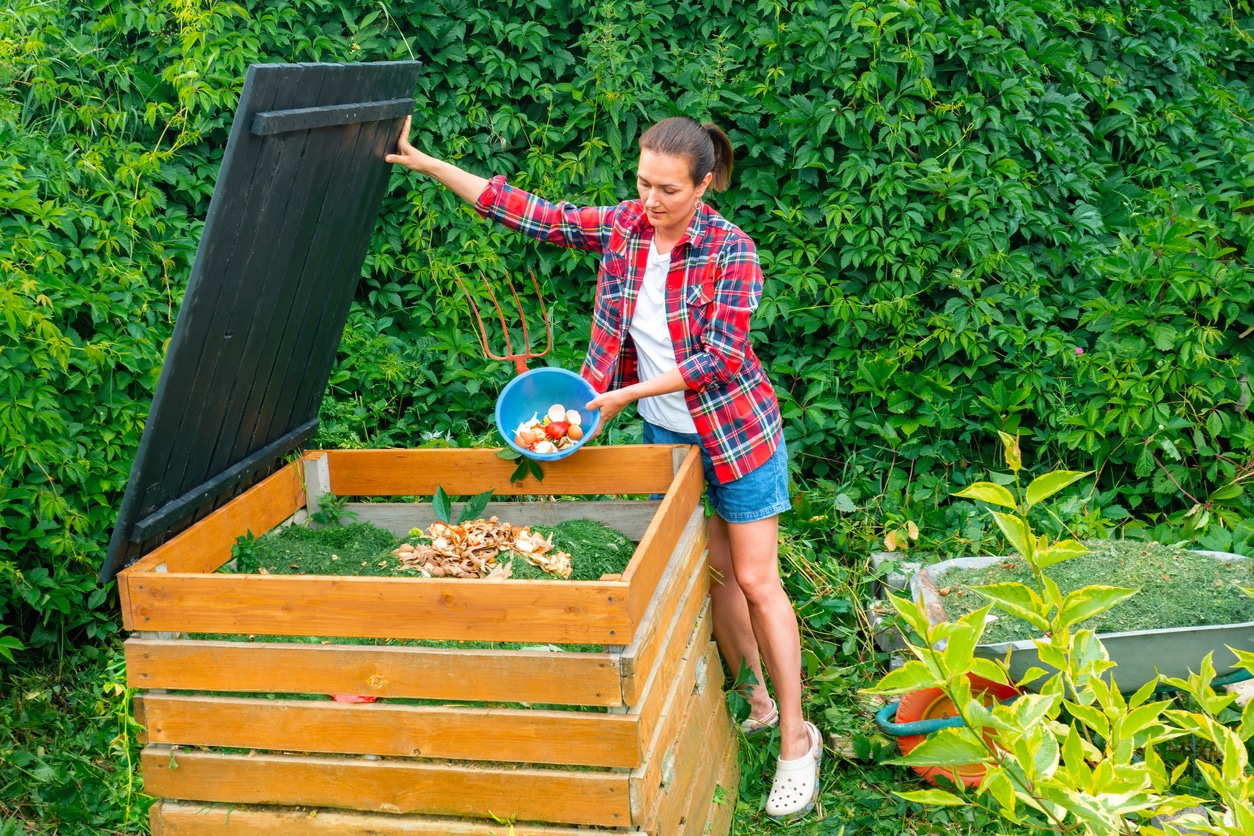
10 Benefits of Composting for Climate Change
Composting is the natural process where organic waste turns into nutrient-rich soil. It’s crucial for sustainable living, as it reduces landfill waste, enriches soil and lessens the need for chemical fertilizers. By creating your own compost, you help combat climate change and support a more sustainable lifestyle — here’s how.
1. Reduction of Methane Emissions
Methane worsens climate change 28 to 36 times more than carbon dioxide. Instead of letting organic waste rot in landfills and release methane, composting allows it to break down with oxygen. Diverting organic waste from landfills and promoting widespread composting can reduce methane released into the air.
2. Carbon Sequestration
Adding compost to soil makes it healthy by improving structure and nutrient availability. It also helps beneficial microorganisms thrive. Compost is vital for storing carbon in the dirt, reducing pollutants in the air and building resilient, nutrient-rich soil.
3. Nutrient Cycling and Fertilizer Reduction
Food waste is a common type of natural fertilizer, constituting 21% of the total garbage in the United States. Nutrient cycling is vital for sustainable agriculture because it ensures essential elements are naturally recycled. Composting supports this by returning organic matter to the soil, boosting nutrients and reducing the need for synthetic fertilizers to improve nutrient levels and plant growth.
4. Water Conservation
Composting and water conservation go hand in hand. When you use compost, it makes the soil better at holding onto liquid and prevents runoff. This means the soil can absorb and keep water more effectively, helping you use it wisely. It also contributes to conservation for regions facing droughts, as plants grown in compost-enriched soil require less water.
5. Reduced Landfill Waste
Landfill waste creates environmental issues such as pollution, but composting steps in as a solution by preventing organic waste from reaching landfills. Instead of these materials decomposing in a way that releases harmful gases, it turns them into nutrient-rich soil.
Right now, a significant amount of organic waste is in landfills, causing problems. The United States contributes over 12% of global waste despite having only 4% of the world’s population. Composting gives a chance to make a positive impact by diverting a large portion of organic waste away from landfills.
6. Community Engagement and Education
Composting is a way for communities to work together for a greener future. Residents can use shared compost bins and join workshops to learn about them. These simple steps reduce waste and strengthen local bonds, fostering a shared commitment to environmental sustainability.
7. Energy Savings in Waste Management
Composting is a greener way to manage waste because it requires less energy than traditional methods like burning or burying trash. For example, burning garbage in incinerators, or burying it in landfills, demands a lot of power and can harm the environment. Conversely, composting is more natural and uses less energy, making it a better choice for the planet.
8. Promotion of Sustainable Practices
Composting helps you adopt a more eco-friendly lifestyle. When you compost, you also tend to use less plastic, recycle more and make sustainable choices, creating a foundation for a broader, eco-conscious way of living.
Nearly 30% of the U.S.’s trash is packaging — about 82 million tons of waste thrown away after use or purchase. Choosing eco-friendly packages, like recyclable barrier technology, is essential. It has up to 27% less global warming potential and 22% less fossil fuel use than other packaging, which helps replace hard-to-recycle multilayer plastics known to contaminate recycling streams.
Using single-use products creates excessive waste. Opting for reusable items that last longer, such as a mug instead of a paper cup or a water container instead of plastic bottles, is better for the environment.
9. Erosion Prevention
Natural fertilizers, like compost, strengthen the ground and help stop erosion caused by wind or rain. Fertile topsoil prevents sediment runoff into bodies of water. This is especially helpful in farming because it keeps the dirt in place, ensuring healthier crops and protecting the environment from damage.
10. Sustainable Waste Management System
Composting is an effective way to reduce the environmental impact of food trash. The life span of landfill sites extends to around 12 to 16 years when diverting excess organic waste from them.
Compared to traditional landfilling, fewer garbage trucks are necessary for trash collection and transport, contributing to a cleaner and more sustainable waste management system. Composting helps lessen emissions by 41 kg CO2e per load of organic waste.
Composting for Climate Change
Composting does more than turn scraps into soil — it helps build a greener world. Whether you live in a house or an apartment, incorporating it into your life any way you can is a small yet powerful step toward a healthier planet and a more climate-friendly future for everyone.



Robert Smith
Composting is a simple yet powerful way to make a positive impact on our environment. This natural process not only reduces waste but also nurtures the soil and promotes eco-friendly living. Thanks for sharing these valuable insights on how to get started with composting and contribute to a more sustainable future!